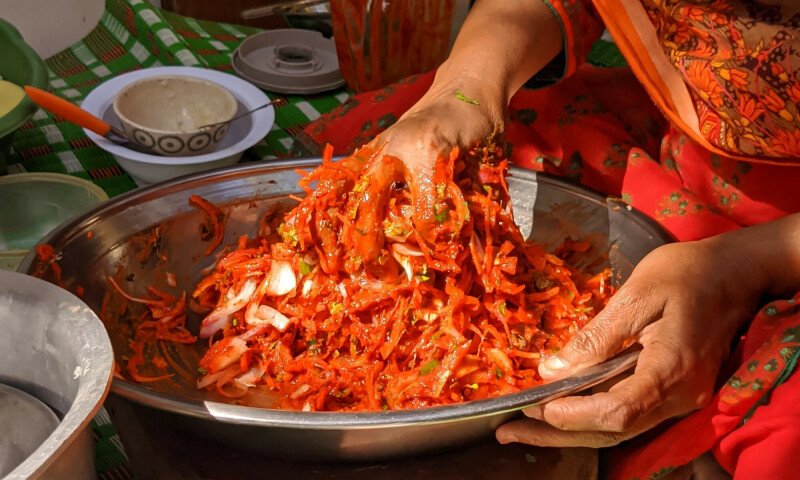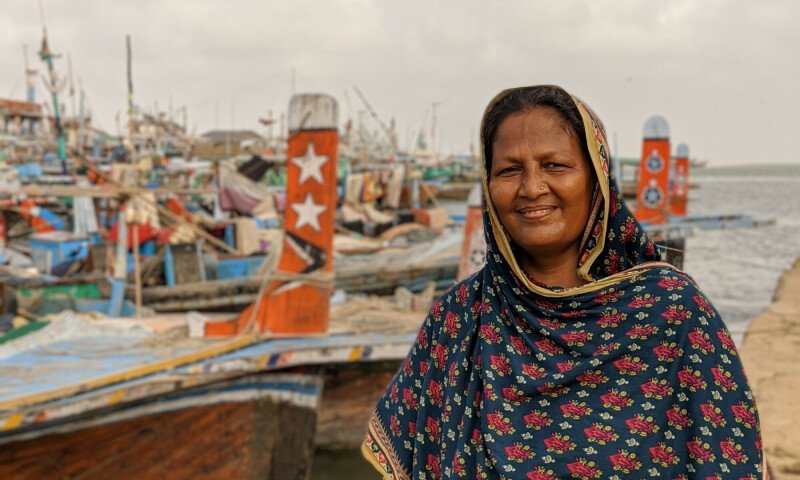February 18, 2025
ISLAMABAD – Fishing has been a part of human life since the world began, as our livelihoods have stemmed from natural resources. When we look back at the past, the Indus Delta was once prosperous and free; the seventeen creeks of the delta were considered to be paradise on earth. However, that paradise is rapidly being lost to unchecked development and climate change. To understand what we are losing, we must first understand what we once had.
Back when the delta was free, we never had to say “yes, sir” or bow down to anyone because we had a direct relationship with nature. Even if we came back empty-handed from fishing, we left the next morning with renewed hope. Just as vast as Allah is, so was the hope and the trust we placed in Him. The delta was a very rich region and the islands were no less than a paradise. The livestock was so abundant that when a boat would appear, local folk wouldn’t let it pass without gifting them milk, yoghurt and butter. Red rice was cultivated on the fertile island plains. My father tells me that in the creeks near these islands, there were so many fish that after having eaten, when we put our plates into the water to wash them, large schools of khagga (catfish) would swarm around them. On the islands, a type of seagrass called soowunn grew, which livestock would graze on all day long.

From these islands, a plentiful supply of desi ghee, red rice, butter and mangoes was brought by boat to the fishing village of Ibrahim Hyderi. From there, they were loaded on camel carts and transported to the city. When the fishermen went out to fish, all the household work and matters of joy or sorrow were managed by the women. They would make rilliyan (quilts), embroider, weave nets and gather firewood from the mangrove forests. When the fishermen returned, the women took over from unloading the catch, boiling and cleaning the prawns, cutting and cleaning fish to salting, drying and packing them in jute bags. They were paid for this work. The making of fishing nets was also a source of employment for women, providing a stable livelihood.
In this way, women worked side by side with men. People were healthy because they ate pure and nutritious food. Women worked through their pregnancies, but their health was never a major concern. In June and July, the sea would become very rough but by mid-August, the sea would return to its normal state. The monsoon rains would arrive on time and the seasons changed according to schedule. The sea was so clear that fish could be found along the shore. In those days, the Indus flowed into the sea in its full glory, reaching as far as Korangi and Phitti Creek – which is why fishermen from Ibrahim Hyderi and Rehri Goth still refer to the sea as the river.

Our destruction began when dams were built on the Indus, blocking its natural flow. The Indus’ final destination is the sea and according to both natural and international law, the people living at the end of the river, particularly the people of the delta, have the first right to its waters. The river’s water is very important for the ecology of the sea and the mangrove forests.
The waters of the Indus are strong and push the seawater away, leaving behind fertile soil that builds the land. They reduce the acidity of the sea and keep the sea’s temperature normal. Now, due to the absence of the river’s water, coastal erosion has swallowed up 4.2 million acres of land (some say it’s as much as 2.7 million acres).
In Pakistan, particularly in Sindh, the effects of climate change are the most severe on the coastal belt. Due to global climate change, not only has coastal erosion increased, but the sea level has also risen. The sea, which would return to its normal position in mid-August, now brings towering waves and high winds throughout September and October. We now only have two seasons (summer and winter), with a shorter winter and a longer summer. The fishing season, which previously lasted from August to November, has shrunk, as by the time the sea settles, the season is over. Rains are either scarce or excessive and untimely.

These changes have resulted in severe repercussions on the fishermen’s livelihoods as well as the environment. There is less employment and the increased acidity in the sea has affected the growth of the mangrove forests. Since fish nurseries are found in the roots of the mangrove forests, fish production has decreased, leading to a decline in employment. As sea levels have risen, most of the over 450 islands in the delta have been submerged. Women have been displaced from their traditional livelihoods, losing their culture. In the past, one person would earn enough to sustain the household, but now everyone has to work just to secure two meals a day. The fishermen try to sell all the fish they catch, as taking some home would affect the wages of other workers. As a result, food scarcity has become an unfortunate reality and proper nutrition is hard to come by.
The Indus is the lifeblood of Sindh. If the river’s natural flow is restored, coal, oil and gas-based power projects are abandoned, marine pollution is controlled and environmentally friendly energy sources are adopted, not only will the Indus Delta be revived but the effects of climate change can also be mitigated.
The destruction caused by the lack of river water and the impact of climate change can be gauged from the fact that we once proudly proclaimed that we lived in a land where the river flows into the sea. But now, with much pain, suffering and grief, we say that we live in a land where the sea flows into the river.
Fatima Majeed is an activist, social worker and Senior Vice-chairperson, Pakistan Fisherfolk Forum. She was recently awarded the Tamgha-e-Karachi.
This piece was originally written in Urdu and translated to English by Ahmer Naqvi.


